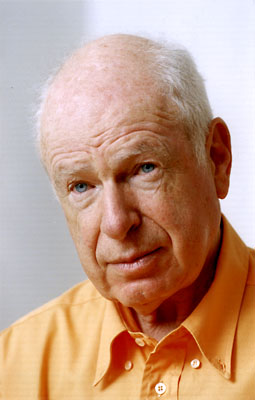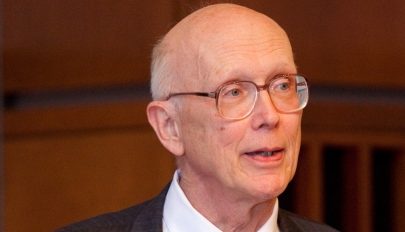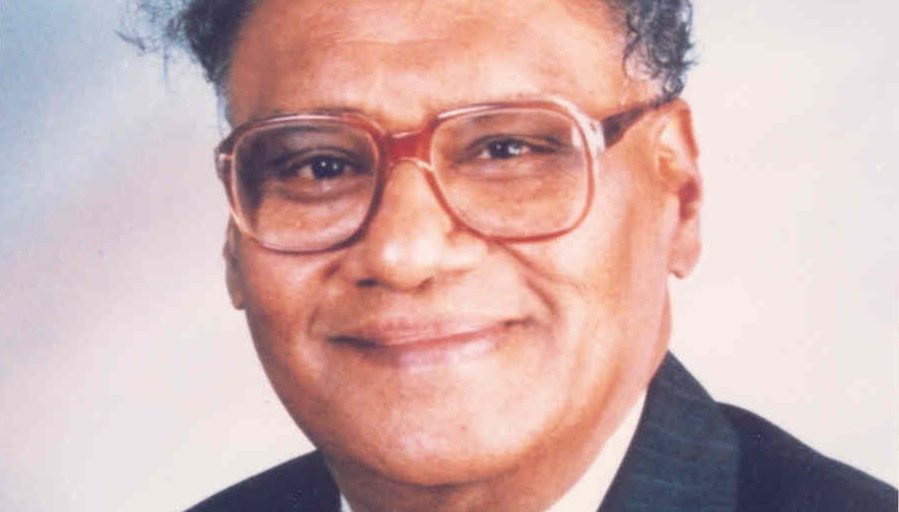Peter Brook

Peter Brook
Present: The Performing Arts – Film, Theater, Dance, Music
Peter Brook, CH CBE is a theatre and film director who has been based in France since the early 1970s. He has won multiple Tony and Emmy Awards, a Laurence Olivier Award, the Praemium Imperiale and the Prix Italia and has been described as “our greatest living theater director.”
Brook is one of the giants of contemporary theater. A unique creative genius who, through his groundbreaking productions, has reinvented the way actors and directors think about theater. Throughout his career, his work in theater, opera, film and writing has been widely acclaimed.
Brook’s stated goal is reconciliation. “The mere fact that you can, in the theater, show two opposing points of view and the audience, just by watching these two, is in a way sympathizing and following them, does reconcile.” he has said. “The act of playing something out, a great conflict, is reconciled by the event itself.”
This sentiment reflects Brook’s sense of justice and democracy, as well as his belief that while theater may not offer the truth, it can present “a moment of truth. When everyone at that moment is touched in the same way.”
Brook the philosopher has invested his efforts into perfecting a theater experience that is simple and subtle, direct, sophisticated, popular and rich in levels of meaning. He has been an active force in reshaping the style and thinking of the theater of the second half of the 20th Century. Brook has brought an approach of constructive revolution to theater, showing how to break away from the “deadly,” banal theater into an experience that is shared by actors and spectators in the deepest sense of the word.
Brook has tremendously influenced generations of directors and actors. His concepts of “deadly, holy, rough and immediate” theaters have become classic concepts in the analysis of theatrical work. The paradoxically unifying theme of his work has been its unpredictability. To quote one of his many wonderful observations “not knowing is not resignation. It is an opening to amazement.”
Storytelling and different ethnic cultures have always been of great interest to Brook and he writes in many of his books about the importance of his travels to Persia, Africa and India. His dedicated search for new inspiration led to his view of multiculturalism as a symbol of universal communication. He traveled extensively to Asia and Africa to study non-Western traditions, to reach local audiences and to create a cultural bridge to unite the divided through the power of theater communication.
But it is Brook’s love of Shakespeare, who has always been his model, that is at the heart of his work as he reinvents and reshapes universal values of theater to better suit our time.
Even after decades in the theater, Brook maintains the iconoclastic approach and the belief in the value of art in all cultures. More than any other artist working in the theater today, Brook has challenged conventional concepts and in the process influenced several generations of theater performers and changed the mentality of audiences everywhere. Through his groundbreaking productions, he has had a huge impact over theater makers and theatre goers around the world.
In the 1940s, when he was only in his twenties, Brook had already attained the status of one of the foremost British directors. At that time he introduced the plays of Jean Cocteau and Jean-Paul Sartre to England and directed in Stratford upon Avon classic plays such as Love’s Labour’s Lost (1946) and Romeo and Juliet (1947). In the 1950s and early 1960s, he co-directed the Royal Shakespeare Company, directing Titus Andronicus (1955), The Tempest (1957), King Lear (1962) and, later, A Midsummer Night’s Dream (1970). He served as director of the Royal Opera House, Covent Garden, London (1947-50). Throughout the 1950s and 1960s the plays he directed were staged in the best London theater houses: National, Globe, Donmar, Lyric, Arts, Ambassador’s, Haymarket, Aldwych, New, Phoenix, and Comedy. During that time he also directed two operas at the Metropolitan Opera in New York and made six films.
Brook was inspired by the experimental theories of German dramatist Bertolt Brecht, Russian director Vsevolod Meyerhold, and Polish director Jerzy Grotowski, among others, in addition to the theater-of-cruelty concept of French writer and actor Antonin Artaud.
He began working with the Paris-based Le Centre International de Creations Theatrales in 1971, staging 25 productions in over 30 years, mostly at the Bouffes du Nord theatre house. Doing so, he attracted numerous actors from all parts of the globe, forming an international company. In parallel, he made four more films and directed the opera Don Giovanni for the 50th Festival International d’Art Lyrique in Aix-en-Provence.
Peter Brook has published a number of books and an autobiography in English (1998) and in French (2003). His most well known book, the Empty Space, was published in 1968 and has since been translated into 15 languages.


